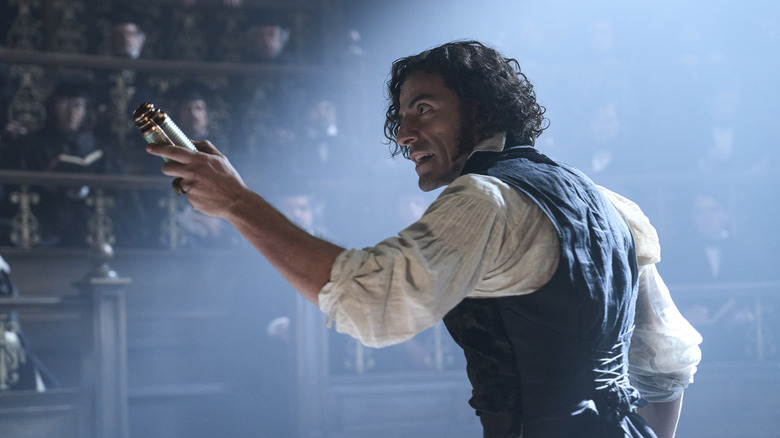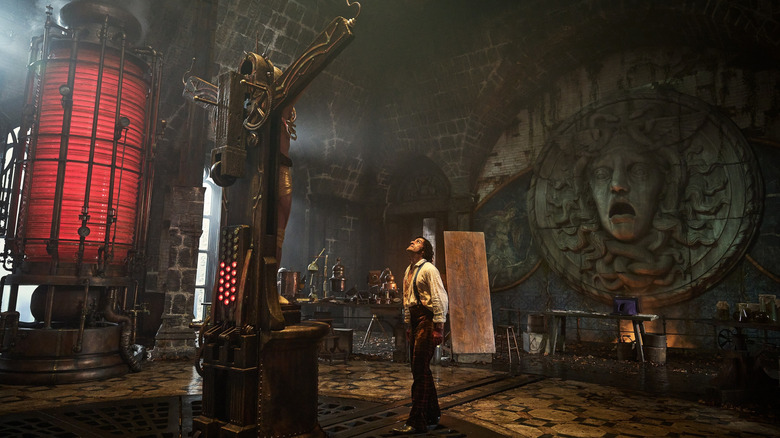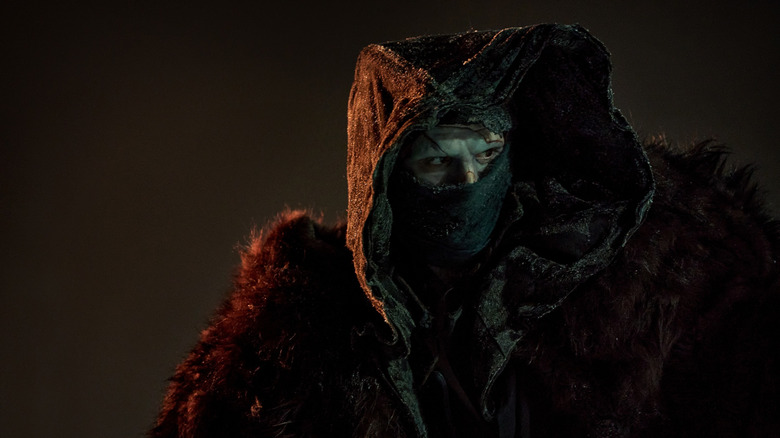Share this @internewscast.com
RATING : 7.5 / 10
- GORGEOUS
- Jacob Elordi gets close to the creature of the novel
- Changes to Oscar Isaac’s Victor make sense
- The horror/revenge elements feel a bit too softened
- Mia Goth is underused
- Guillermo del Toro’s done many of these ideas better before
I approach Guillermo del Toro’s adaptation of “Frankenstein” with a sense of anticipation and personal bias. Del Toro, a director of immense talent, is responsible for “Pan’s Labyrinth,” a film I hold in high esteem. As for Mary Shelley’s “Frankenstein,” it stands as a personal literary favorite, and no film adaptation has yet fully conveyed the groundbreaking and enduring essence of the 1818 novel. Del Toro, having expressed his intent to craft a “Frankenstein” film since 2007 with a pledge to adhere closely to the book, generates quite the buzz with the prospect of his interpretation finally coming to fruition.
In various respects, Del Toro’s rendition of “Frankenstein” aligns more closely with Shelley’s original text than previous cinematic portrayals. He retains the layered, multivoice narrative structure and, crucially, gives prominence to the articulate and quick-witted Creature (played by Jacob Elordi), starkly contrasting the silent Boris Karloff interpretation that dominates public perception. Yet, this is not a direct translation of the novel, as Del Toro injects his own thematic interests and makes notable alterations to the plot and character dynamics. This is decidedly Del Toro’s “Frankenstein,” not Shelley’s.
Some of Del Toro’s adjustments are intriguing and impactful, though certain elements might have been more innovative had they been introduced in 2007, given his exploration of similar themes in subsequent films. On its own, “Frankenstein” is a captivating, emotionally resonant, and visually stunning epic. Although, as an admirer of both Del Toro and Shelley, I find myself examining the nuances critically.
Different angles on monsters and bad parenting
At the 2025 Toronto International Film Festival, Guillermo del Toro discussed his fascination with “Frankenstein” as a narrative centered on the father-son dynamic. A significant deviation in his version is the reimagined conflict between father and son. The original novel’s Victor Frankenstein abandons his creation out of fear; however, in this adaptation, Victor’s character evolves from an abused child (played by Christian Convery) into an abusive father (played by Oscar Isaac), who scorns his creation rather than fearing it.
Del Toro maintains that this iteration of “Frankenstein” is not a horror film. The single truly terrifying scene, where Victor demonstrates his experiments to aghast peers, essentially dispels fear from the film’s psychological core — if Victor remains unfazed by this, he’s unlikely to fear his finished Creature. Instead, Victor loathes his creation for falling short of his ideals and feels profound dissatisfaction after obsessively pursuing this achievement. Witnessing him dismiss the Creature’s emotions is profoundly moving, especially seen as a metaphor for mistreatment of individuals with disabilities.
While Oscar Isaac’s Victor embodies malice, Jacob Elordi’s Creature is a tender entity navigating the world anew. The sequence closely aligned with the novel, where he tends to a family’s needs as an unseen “Spirit of the Forest,” learns language from them, and bonds with their blind elder (played by David Bradley), is beautifully rendered. However, the conclusion of this sequence makes me question the merit of the “not horror” stance. Since simple fear isn’t enough to explain the Creature’s rejection, Del Toro introduces false murder accusations — occurring three times throughout the film. While attempting to add depth to human fear, this choice seems to undermine the film’s impact, notably softening the Creature’s vengeful pursuit. Del Toro’s affection for his monster prevents him from depicting a truly monstrous choice — evident in the Creature’s biblical self-reference to Adam, excluding any affinity with Lucifer.
A beautiful Frankenstein, but not a definitive one
It goes without saying that “Frankenstein” is one of the most beautiful-looking movies you’ll see all year. With its enormous Gothic sets and colorful Victorian outfits, it’s an easy frontrunner for the production design and costume design Oscars, and the elegant scarring of the Creature makes it a strong contender for the makeup and hairstyling award. The film took so long to make in part because Guillermo del Toro demanded to make it on an epic scale with no expenses spared, and the wait paid off in that sense.
That Del Toro completed several other dream projects of his in the meantime makes a few of his fresh twists on the material less fresh. His decision to make the Creature not merely strong but full-on immortal resembles his version of “Pinocchio,” as does the more hopeful perspective on mending cycles of familial trauma, while the connection between Elizabeth (Mia Goth) and the Creature is just a few inches away from going full “Shape of Water.” The potential for this version of Elizabeth feels unfortunately wasted — she makes a strong first impression, and her early rebuffs of Victor offer the film’s best moment of comic relief, but the film fails to make great use of her.
This “Frankenstein” runs two and a half hours, and with its bifurcated structure, Netflix might be preparing for some viewers to make their own little intermission. I wish it came with an actual intermission in exchange for a longer runtime to allow a fuller adaptation of the book’s darker final third. This is not the be-all, end-all “Frankenstein” movie I had hoped for, though it’s still a stunning filmmaking accomplishment in its own right. My favorite movie based on the “Frankenstein” concept is still “Poor Things,” and the best adaptation of Mary Shelley’s novel is Nick Dear and Danny Boyle’s National Theatre production with Benedict Cumberbatch and Johnny Lee Miller.
“Frankenstein” screened at the Toronto International Film Festival. It opens in select theaters on October 17 before streaming on Netflix on November 7.
![Guillermo Del Toro Makes The Monster His Own [TIFF 2025]](https://internewscast.com/wp-content/uploads/2025/09/Guillermo-Del-Toro-Makes-The-Monster-His-Own-TIFF-2025-800x430.jpg)








